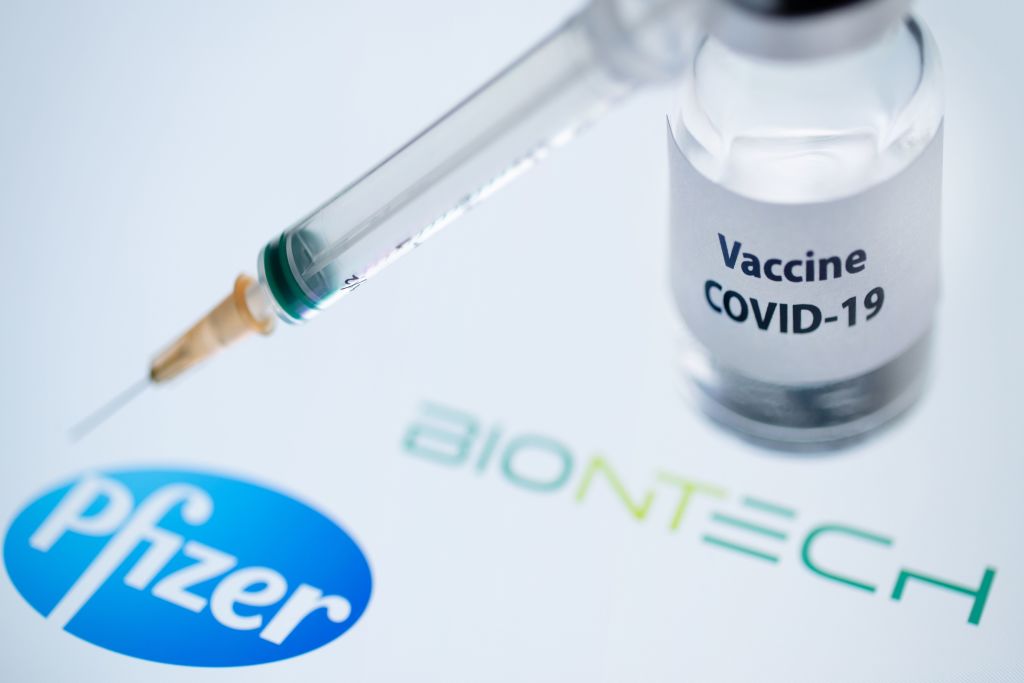
The U.S. is poised to get its first vaccine for Covid-19.
An independent advisory panel to the U.S. Food and Drug Administration voted Thursday in favor of the vaccine developed by Pfizer and BioNTech, potentially making it the first Covid-19 vaccine cleared for use in the United States – and one of the fastest.
The vote was 17 to 4, with one member abstaining, on the question of whether the scientific evidence of the vaccine’s benefits outweighed the risks for people 16 years and older.
The recommendation is non-binding. But the FDA is likely to move quickly, as the virus continues to tear through the U.S., killing between 2,000 and 3,000 people per day.

NEMT Partner Guide: Why Payers and Providers Should Choose MediDrive’s TMS
Alan Murray on improving access for medical transportation.
New York-based Pfizer and its German partner BioNTech began testing their vaccine in late July. They announced interim results in early November claiming the vaccine was 90% effective. The effectiveness was subsequently updated to 95%.
However, members of the FDA’s Vaccines and Related Biological Products Advisory Committee wrestled with whether the companies had collected enough data on the vaccine’s safety and efficacy to support its wider use. Vaccine trials typically take years.
The panel members focused, for example, on reports of two allergic reactions to the vaccine in the United Kingdom, where public vaccinations began on Tuesday.
Most reactions to the vaccine are mild and consistent with what happens with other vaccines, according to data presented to the panel by Pfizer. Reactions include redness and pain at the injection site, followed by fever, chills or other minor complaints.
Another question was whether the vaccine prevented severe cases of Covid-19.
“That’s the kind of data we really need to see,” said panel member Sheldon Toubman, an attorney with the New Haven Legal Assistance Association in Connecticut.
Discussion also centered on what will happen to people who received a placebo in the trials and want to get the actual vaccine instead. The trial is supposed to run two years, so there is concern over how the long-term results might be affected if participants opt out.
The Pfizer/BioNTech vaccine relies on a relatively new technology known as messenger RNA, which essentially triggers an immune response to Covid-19 without having to inject any of the virus itself. It is given in a series of two shots, 21 days apart.
Pressure for the U.S. to act has been building over the last week.
The United Kingdom approved the Pfizer/BioNTech vaccine on Dec. 3. Health Canada authorized the vaccine’s emergency use on Dec. 9.
The virus’s wildfire spread also is an incentive for action. More than 100,000 Americans are hospitalized with Covid-19, nearly twice as many as during the spring and summer peaks, according to The Atlantic magazine’s Covid tracking project.
More vaccines are coming. Next up for consideration is a two-dose vaccine being developed by Moderna. Its candidate will be the subject of an FDA advisory panel meeting on Dec. 17.
While approval is seen as a crucial step in stopping the Covid-19 pandemic, it will still take months for vaccines to reach a significant chunk of the U.S. population. Complicating distribution is the extremely cold temperature at which the Pfizer/BioNTech vaccine must be stored: between -60 and -80 degrees Celsius.
The country also may struggle to find enough health care workers to administer the vaccine, since medical resources are stretched thin by caring for people with the virus, said David Berger, a director in the life sciences practice at consulting firm Guidehouse, which has done work for vaccine makers.
“Health systems and hospitals are maxed out,” Berger said in a phone interview.
Communication also will be key, as public skepticism about vaccines persists, Berger added. Public officials also need to set realistic expectations about the time it will take for the vaccine to make a widespread impact.
Photo: Joel Saget, Getty Images)








